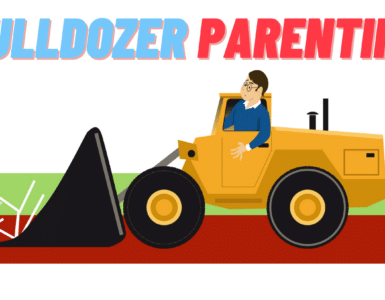As a parent, you want to do what’s best for your kids and protect them from harm. It’s natural to begin setting boundaries at an early age, telling them things like “no” when they try to touch something that can harm them or redirecting their attention from an activity that isn’t beneficial.
As kids age, however, boundaries become more challenging, especially as they begin pushing back on them, which is why having a clear understanding of what your limits are for your children and why you’ve chosen to enforce them is essential for staying the course.
Boundaries are a crucial part of a child’s development, teaching them life skills like problem-solving, patience, self-discipline, responsibility, and resourcefulness. In fact, children actually crave limits; they thrive on them since they introduce consistency and predictability while displaying your deep and abiding love.
When your child knows what they can and can’t do, it promotes independence and self-regulation, which develops confidence and increases their self-esteem. While they may not act like they like your rules and boundaries, the reality is they make them feel safe and secure and, most importantly, loved!
How to Set Boundaries with your Kids
When setting healthy boundaries for your kids, it’s important to make sure you do it in an age-appropriate way.
A four-year-old should not be allowed to stay up until 11:00 pm since they require adequate sleep to grow and learn. Likewise, a sixteen-year-old walking around the house without clothes on is widely considered inappropriate, and encouraging them to wear clothing for a measure of modesty can help keep them safe and develop self-respect.
Once you’ve determined the appropriate limits for your child, the following tips will make implementing them into your daily life easier.
Set Clear Rules
Clarity is essential for boundaries since it allows children to understand what is expected of them. For younger kids, writing the house rules on a piece of paper and reviewing them daily is great for reinforcing appropriate behaviors, while older children may benefit more from action/consequence reinforcement.
Consistency Is Key
Being consistent with your boundaries is essential since children will quickly take advantage of rules they believe they can break. It may take some time, but once they realize you are serious, they will naturally begin sticking to the rules you have in place.
Be Firm
When (not if) your kids overstep their boundaries or break the rules, it’s important to react firmly yet lovingly. Explain to them that they have crossed a line, and it goes against the boundaries you have in place. Every child is different, and for some, this may be enough, but for others, it may take a consequence like losing an electronic, time out, or missing out on dessert to get your point across.
ALSO: Should Parents Allow Teens to Drink at Home?
The important thing is to always act in a loving manner and reinforce that even when they behave “badly,” your love for them never diminishes.
Praise Them
When you see your child following the rules, offering them praise and acknowledgment is one of the best ways to inspire them to continue doing the right thing. Positive reinforcement always goes further than negative, so showing them how proud you are of their efforts will encourage them to keep making the right choices.
How to Enforce Boundaries
Creating boundaries and enforcing them are two very different things, so having a game plan for implementing the rules you’ve set will make the process easier for you and your kids. Here are a few tips you can use to help enforce boundary limits.
Create A Contract
Contracts are a great way to get kids involved and hold them accountable for their actions. Work together to create a document that addresses the boundaries in a way they can understand, and be sure you both sign it to show them you’re dedicated to doing your part.
Use Comprehensive Thinking
Asking your kids what part of their actions broke the boundaries forces them to think critically and helps them develop a greater sense of self-regulation. By addressing what needs to change, your child can begin correlating boundaries with the correct behavior.
NO means NO
When your child takes you seriously and understands when you tell them no, you mean it, you will have a much easier time enforcing established boundaries.
Adjusting Boundaries
As your kid’s age, you will naturally have to adjust their boundaries, which is a normal part of growing up. It’s important to remember there’s no one-size-fits-all approach to limitations, and you should take into account each child’s individual personality, maturity level, and emotional and mental capabilities.
ALSO: Parenting Style — Are You Authoritative, Permissive, or Authoritarian?
When it’s time to adjust a preset boundary, sit down with your child and explain to them that because of their age, you’re entrusting them with greater responsibilities; however, if they misuse or take advantage of them, they will lose the privilege. Being open and honest is the best way to foster mutual respect and encourage positive decision-making skills.
Importance of Communication
As mentioned, transparent communication is key to developing a strong relationship with your child. When you are open and honest with them, they feel comfortable coming to you, which is invaluable, especially during the teen years. Effective communication skills can also help limit conflict and stress, which can drive a wedge between you and your children. Don’t be afraid to begin talking to your kids when they are young, using age-appropriate language for explanations, and treat them like human beings, not just “kids.”
ALSO: Omegle is the Lesser Known Chat Site That Endangers Children
Setting boundaries with your children is one of the most loving things you can do for them, setting them up for success in the future. While it can be challenging, with determination, patience, and understanding, your child will come to learn and respect the rules you’ve set, helping keep them safe and happy for years to come!










Add comment